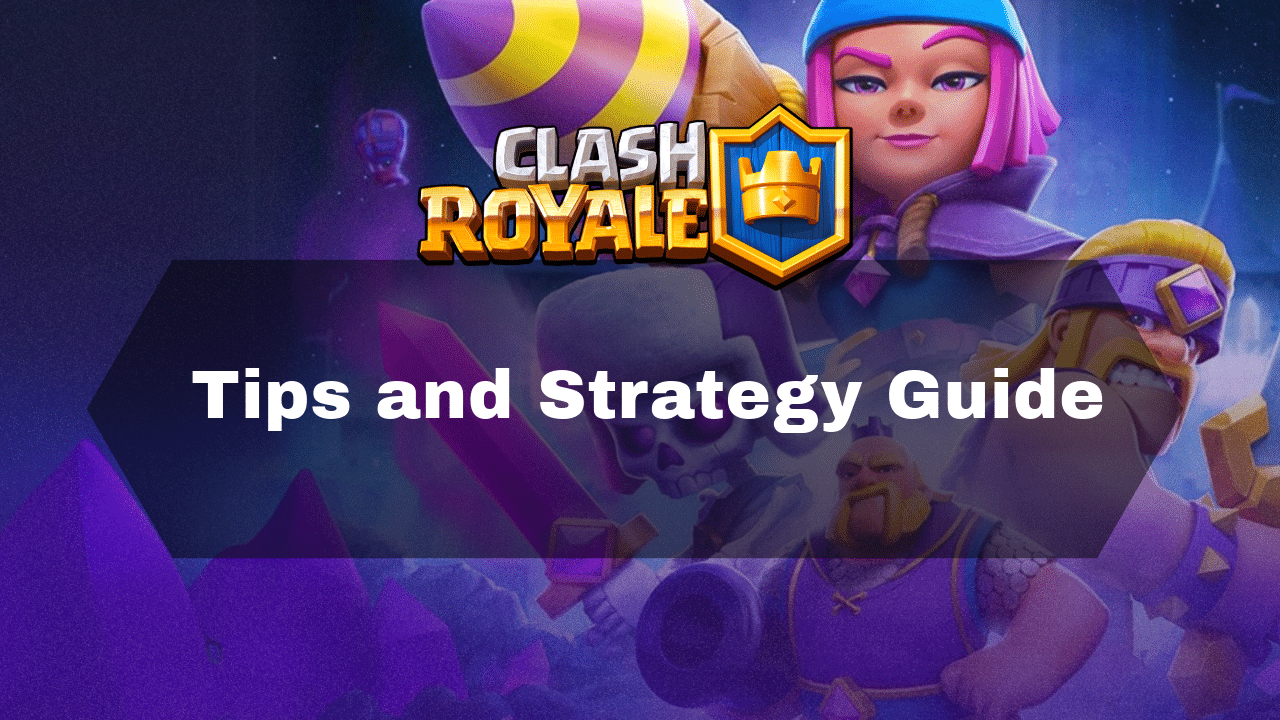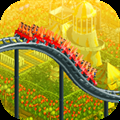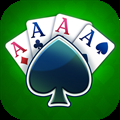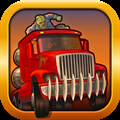Clash Royale Tips And Strategy Guide - Theria Games

Introduction
Clash Royale is a fast-paced mobile strategy game developed by Supercell, known for its engaging real-time, player-versus-player action. The game challenges players to destroy their opponent’s towers and ultimately their King Tower, all within a match lasting just 3 minutes, with the possibility of overtime if both players are tied. The core mechanic of Clash Royale revolves around the use of Elixir, a vital resource that players use to deploy a wide variety of cards, each representing different troops, spells, and buildings. Efficiently managing Elixir is essential for success, as players must strike a delicate balance between offense and defense.
Every move counts, whether it’s deploying troops to launch an attack, using spells to disrupt the opponent’s strategy, or countering their forces with well-timed defenses. Quick thinking and the ability to predict your opponent’s next move can often make the difference between victory and defeat. A comprehensive Clash Royale Tips and Strategy Guide can provide players with valuable insights into managing their cards, understanding the strengths and weaknesses of different units, and crafting strategies that work best for their playstyle.
Moreover, the game’s exciting gameplay keeps players coming back, with each match offering a unique challenge that tests both their tactical thinking and reaction times. Clash Royale’s blend of strategic depth, dynamic gameplay, and competitive edge has made it a global favorite, appealing to both casual players looking for quick matches and competitive strategists aiming to climb the leaderboards. Whether you’re just starting out or aiming to refine your skills, there’s always room for improvement, and each game is a chance to learn something new.
Deck Building and Progression
In Clash Royale, building a strong deck is essential for success, as your deck represents your army. One important strategy is to avoid upgrading every card as soon as you have the resources. Instead, focus on upgrading the cards that fit into your main strategy to ensure you have enough gold for significant upgrades to the cards you actually use. When building your deck, it’s crucial to strike a balance across different card types and costs to create a cohesive and efficient strategy.
A well-rounded deck should include a variety of card types, including ground units, flying units, buildings, and spells, which gives you flexibility in both offense and defense. The average elixir cost of your deck should ideally fall between 2.5 and 4.5. A deck with too high of an elixir cost can make it difficult to counter attacks effectively, while a deck that is too cheap might lack the offensive power needed to break through enemy defenses.
It’s also important to choose a primary win condition card—such as the Hog Rider, Golem, Lava Hound, or Giant—that will be your main source of damage to your opponent’s towers. Build the rest of your deck to support this win condition while covering its weaknesses.
Support troops are an essential part of this strategy, as they work alongside your win condition to enhance its damage. For example, the Baby Dragon and Night Witch can support a Golem push, while the Ice Golem and Valkyrie can complement a Hog Rider attack. Defensive cards should not be overlooked, either, as they are key to stopping enemy pushes and protecting your towers. Cards like the Ice Wizard, Goblin Gang, or defensive buildings like the Tesla or Bomb Tower help to counter your opponent’s offensive units.
Spells also play an important role in your deck. Whether used offensively to deal damage or defensively to stop an enemy push, well-timed spells can be the difference between victory and defeat. Consider including a mix of damage-dealing spells like Fireball or Lightning, and utility spells like Zap or Tornado to provide versatility in handling various situations.
As you progress, it’s helpful to join a clan, which can provide access to cards from clanmates, the ability to participate in Clan Wars for additional rewards, and opportunities to practice in friendly battles. Being part of a clan also allows you to gain advice from experienced players. Additionally, using meta decks—those that are popular and effective in the current game environment—can give you an advantage. Participating in challenges and tournaments will also help you unlock new cards, earn bonus rewards, and refine your skills.
Remember, deck building is an ongoing process. As you unlock new cards and progress through the arenas, continually experiment with different combinations, observe your opponents’ strategies, and adjust your deck to counter the evolving meta. This adaptability is key to maintaining success in Clash Royale.
Battle Strategies
Mastering battle strategies in Clash Royale is just as important as having a powerful deck. Knowing how to effectively manage your elixir, execute well-timed attacks, and defend strategically will significantly improve your chances of victory. Elixir management is crucial, as it’s the most fundamental aspect of winning battles. One of the key principles is not to leak elixir—ensure your elixir bar is constantly in use, especially as it approaches the maximum of 10.
If you let it fill up while your opponent is playing cards, you give them an elixir advantage. Aim to make positive elixir trades by countering enemy cards with cheaper ones, for instance, using a 3-elixir Fireball to eliminate a 6-elixir combination like Knight and Archers, putting you ahead by 2 elixir. Another key strategy is not overcommitting on defense—defend effectively with minimal elixir to avoid leaving yourself vulnerable to counter-attacks. A lone Hog Rider, for example, can be fully countered with a 4-elixir Tesla.
When it comes to offensive strategies, it’s important to start slow and build momentum. Avoid rushing in the early stages of the match; instead, allow your elixir bar to fill while observing your opponent’s moves. Starting with a low-cost card helps you scout their strategy without risking a significant elixir disadvantage. Be cautious not to activate the King Tower prematurely—attacking it before taking down an Arena Tower triggers its defensive cannon, making it harder to launch attacks. Tanks, like Ice Golem or Knight, can be used strategically to pull enemy troops into the other lane, allowing both of your Arena Towers to focus fire on them.
Applying pressure in the opposite lane is also a useful tactic; for example, if your opponent places a high-cost tank like a Golem at the back, you can attack the opposite lane, forcing them to split their attention and resources. Focusing on one Arena Tower at a time is generally more effective than switching between them, as it prevents prolonging the game and gives your opponent more chances to counter. If you’re losing, try to shift momentum by launching a strong push toward the opponent’s weaker tower, forcing them to defend it while you potentially even the playing field.
Defensive strategies are just as important, as a solid defense can create opportunities for powerful counter-attacks. Let your towers do most of the work by defending within your side of the arena and avoiding unnecessary attacks on the opponent’s side.
Avoid activating your King Tower too early; while the King’s cannon can be helpful in defense, activating it prematurely gives your opponent a third tower to target. Use space between your troops to avoid getting them wiped out by area damage spells like Fireball or Lightning.
Kiting is also a crucial defensive technique—use units like Ice Golem or Skeletons to distract and redirect powerful enemy tanks like P.E.K.K.A. or Mega Knight, allowing your towers to chip away at their health. Placing defensive buildings like the Tombstone or Tesla strategically can help defend both lanes and even redirect enemy troops or block certain attacks. Always stay prepared with a strong defensive unit and supporting troops ready to deploy, anticipating your opponent’s moves to avoid being caught off guard.
As you gain experience, advanced strategies can help elevate your gameplay. Baiting is one such tactic—use specific cards to lure out counters from your opponent, leaving your win condition free to attack. For example, a Princess placed at the bridge can bait out The Log, leaving your Goblin Barrel vulnerable. Predictions are another advanced strategy; by learning your opponent’s card cycle and deck composition, you can predict their next move. For instance, if you know they have a Skeleton Army, you can preemptively use The Log just as their Hog Rider crosses the bridge to take down their tower.
By mastering these battle strategies and adapting them to the unique situations you face in every match, you’ll be on your way to achieving greater success in Clash Royale, dominating the arena with skill and precision.
Resources and Learning
Becoming a skilled Clash Royale player goes beyond simply playing matches; it requires a commitment to actively seek out resources and learning opportunities that will deepen your understanding of the game, refine your strategies, and help you stay ahead of the ever-evolving meta. To truly excel, you must develop a comprehensive approach that involves not only honing your skills through practice but also staying informed about the latest updates, card changes, and the strategies employed by top players. This means consistently analyzing your gameplay, learning from both your victories and defeats, and experimenting with different strategies to find what works best for you.
Engaging with the community, studying replays, and exploring new decks and tactics will keep you adaptable, ensuring that you can adjust to shifting trends and maximize your potential in every match. By combining knowledge with practical experience, you’ll be able to continuously evolve as a player and maintain a competitive edge in the arena.
Another great learning tool that can significantly improve your skills is reviewing your own match replays. Analyzing your battles, particularly your losses, allows you to critically evaluate your gameplay. Look for areas where you could have managed your elixir better, where you placed your cards poorly, or where your counter choices might not have been optimal. Identifying these mistakes will help you make more informed decisions in future matches. Additionally, reviewing your opponent’s strategies and learning how they executed their game plan can provide you with ideas on how to counter them in the future. By understanding their tactics, you can adjust your own deck and approach to better handle similar situations and build counter-strategies for different opponents.
Learning in Clash Royale is a continuous journey that doesn’t stop after each match. The game is constantly evolving, with new cards, balance changes, and shifting metas that can impact the strategies that work best.
As such, it’s important to stay engaged with the game and the community to remain competitive. The meta evolves over time, and the strategies that worked yesterday might not be as effective today.
Keeping track of these changes and adapting your strategies is crucial for staying on top. Engaging with the community by reading guides, joining discussions on forums, and participating in events will help you stay updated and gain fresh insights. By continuously expanding your knowledge base and experimenting with new strategies, you ensure that you’re always improving and refining your skills. Whether you’re watching replays, reviewing your own performance, or staying up to date with community discussions, each step contributes to making you a more formidable player in the arena.
Additional Tips
Beyond the core battle strategies and learning resources, there are numerous smaller tips and tricks that can significantly enhance your performance in Clash Royale. These insights, often overlooked by beginners, can help you refine your decision-making, optimize your gameplay, and gain a competitive edge. One of the most important aspects to keep in mind is card levels. Upgrading your cards is essential for success, but it’s important to focus on upgrading the cards that you actually use in your deck. Spreading your resources thinly across all your cards will slow down your overall progress. Prioritize upgrading your win condition, primary defensive cards, and commonly used spells to maximize their effectiveness and ensure you’re consistently powerful in battle.
Joining an active clan provides a variety of benefits that can fast-track your progress. By requesting cards from your clanmates, you can level up your cards more quickly, while donating cards in return provides you with gold and experience points. Participating in clan wars further rewards you with unique bonuses. Be sure to look for a clan with high donation rates and active participation to get the most out of these benefits.
Another key tip is to timing chest unlocks properly. The size and rewards of chests depend on the arena you’re in, so aim to open larger chests like those earned from battles or quests when you’re in a higher arena to maximize the rewards you get. You can plan your chest unlocks ahead of time by paying attention to your current arena and using tools that preview upcoming chests, which allows you to optimize your chest unlock strategy.
Understanding card interactions is also crucial for mastering Clash Royale. Not all card combinations are created equal, and being aware of synergies and counterplays will allow you to make better decisions during your battles. For example, knowing that the Inferno Tower counters high-hitpoint tanks like the Giant or Golem can help you prepare for these pushes and defend efficiently. Understanding these interactions will give you an advantage and help you better anticipate your opponent’s moves.
The meta in Clash Royale constantly evolves, so staying informed is key to staying competitive. Observe trends in your opponents’ decks and strategies, and adjust your deck and playstyle accordingly. New card releases and balance changes can significantly impact the game’s dynamics, and adapting to these changes will help you remain ahead of the curve.
While it might be tempting to mute the game, playing with audio on can give you valuable cues during gameplay. For example, the sound of the Hog Rider’s entrance alerts you to its deployment, allowing you to react more quickly and prepare a counter. Sound effects can help you stay more aware of the action, improving your overall reaction time.
If you’re facing a toxic opponent who spams emotes or engages in poor sportsmanship, make use of the mute button. This allows you to focus solely on the game, without being distracted by unnecessary taunts or emotes. Don’t let these distractions affect your performance—stay focused and stick to your strategy.
Patience is also key in Clash Royale. Avoid impulsive moves and take the time to analyze each situation before committing to a play. Observe your opponent’s elixir count, their card cycle, and potential counters, which will give you the insight to make more calculated decisions and avoid unnecessary mistakes.
Knowing when to push and when to defend can be the difference between victory and defeat. Don’t always rush for the King Tower; sometimes securing a one-crown victory with solid defense is the smarter approach, especially when facing a tough opponent or difficult situation. Don’t be afraid to play a more calculated, defensive game if it leads to a better overall outcome.
Finally, testing new decks in friendly battles before using them in ranked matches is an excellent way to experiment without risking trophy loss. This allows you to become comfortable with a new deck’s playstyle, refine your strategy, and identify weaknesses without the pressure of ranked competition.
By incorporating these additional tips into your gameplay, you’ll enhance your understanding of the intricacies of Clash Royale, improve your decision-making, and ultimately find greater success in the arena. Continuous learning and adaptation are essential to becoming a truly formidable player, so keep refining your skills and stay open to new strategies and insights as you climb the ranks.













